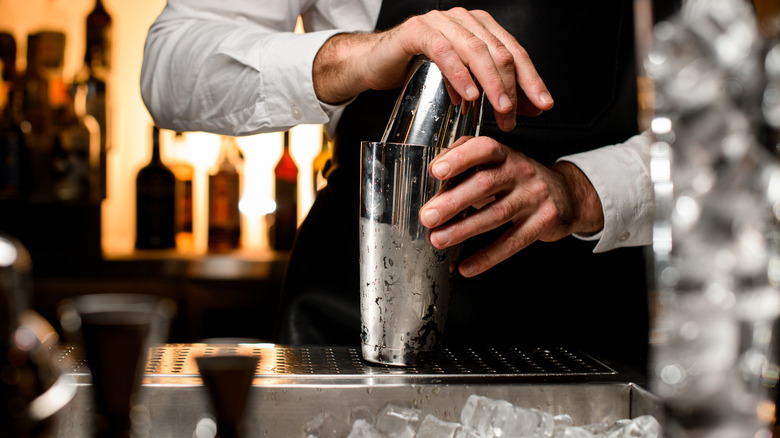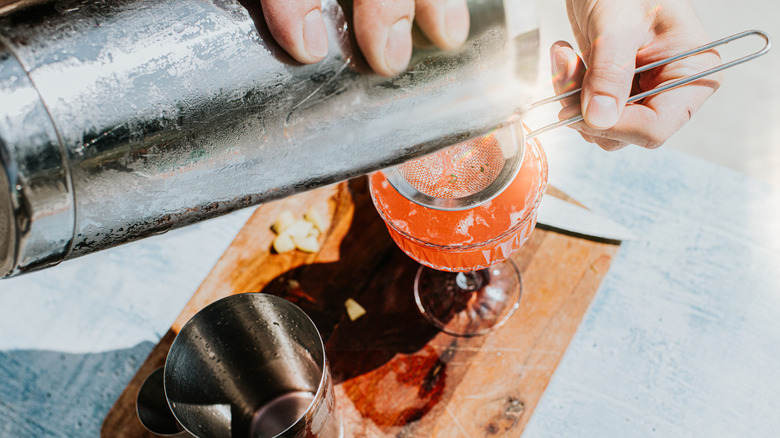How Long Does Bartending School Take And Can You Be Self-Taught?
As you watch your bartender artfully swirl various liquids together in a crystal mixing glass — much the same way you imagine an alchemist might craft their potions — you have probably thought to yourself, "Man, I should be a bartender." Over the span of 14 years in the industry, having tended bar everywhere from hometown dives and bougie craft cocktail bars to Bourbon Street nightclubs and country clubs, I can't tell you how many times I've heard that sentiment. "Did you go to bartending school?" many ask when you make it look easy. But like most things, you become a good bartender simply by bartending — a lot.
There are certainly privately-owned bartending schools that you can attend — in person or online — which can include information about how to make classic cocktails, how to set up and clean a bar, stir and shake a drink, change a keg, or talk about wine. Some might be able to answer your question about why mixologists slap herbs, while others can give pointers on how to deal with rowdy drunk folk (though no class can truly prepare you for that). Courses typically run between one and five weeks and cost anywhere from $400 to $1,000.
But rather than pay someone to teach you an easy Negroni recipe, it would behoove you to get a good cocktail book, study it, and dive right into experiential learning. Because what you really need in order to be a good bartender is restaurant chops.
On-the-job training is preferable and more beneficial
Internet searches may suggest that employers require a bartending certificate, though I've never seen that put into practice. Depending on which state you live in, however, you may be asked to secure a bartending license that indicates you're up to date on the state's laws and regulations surrounding the handling and serving of alcohol. Often a fresh bartending school certificate does little but impress upon employers your greenness in the industry, as many people get their first bartending gig by working their way up in a restaurant.
Newbies may think it elitist: the difficulty of getting hired as a bartender without the experience of first being a host, server, or barback. But being solid behind the bar requires a firm grasp on the big picture. Movies will have you believe that 90% of bartending is standing around, listening to the woes of your regular crowd. While there's certainly a touch of that (which is cute), there are 30 other people standing at your bar who want your attention! Mastering multitasking is the No. 1 secret to bartending — a feat more easily achieved when you've acquired the muscle memory to reach for ingredients without having to think. That just takes practice.
So, forget bartending school, learn some classic cocktails, and practice a lot. Figure out how to make brief moments with people feel meaningful, and not only will you nail the interview, but you'll be everyone's favorite bartender in no time.

